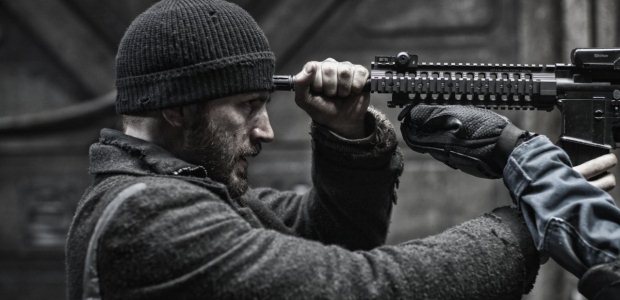
There is nothing like a genre film that aspires to be subversive and then achieves it. Snowpiercer looks like a slick Hollywood film but this turns out to be a mere façade; deep inside it is a good old fashioned Korean offering.
The setup itself lends to the film’s overall intrigue. In 2014 an experiment to stop global warming went awry. This contributed to the worsening of the planet’s climate, freezing the Earth and returning it back to the ice age, but a small portion of humanity survived by taking refuge inside a constantly moving train, a sort of proverbial Noah’s ark that traverses the globe. At the film’s start, set in 2031, we meet the inhabitants of the tail end carriage, a ragtag, festering group of desperate souls planning a resistance. They are led by Curtis (Chris Evans, continuing his winning streak after Winter Soldier) whose plan is to foray into the engine room at the front and seize control of the train, thereby ending the class system that keeps his kind from partaking in the comforts enjoyed by those in the anterior carriages.
Like any good Korean film, Snowpiercer engages by being eccentric to the point of seeming bizarre and darkly maniacal. The best films of Korean cinema from the last decade or so have been so cliché averse that they have become a genre of their own (i.e. the Korean new wave). Snowpiercer belongs to this canon, except, owing to the big names that adorn the posters and the screen, it has the glint of a Hollywood production. Director Joon-ho Bong, along with contemporaries such as Chan-wook Park (one of the producers here) has been at the forefront of redefining South Korea’s exciting cinema movement and here he allows human nature to run amok. The screenplay, which he co-wrote, gives the absurd and the unpredictable situations we see enough room to draw us in. Remember the corridor scene from Oldboy? Here you get a rendition of that in a moving train. Inside a dark tunnel. With flame torches being used for light.
There’s a few Speed like thrills, but the objective isn’t to stop the train but keep it going while still trying to get to the front without being killed. In this way the film becomes a colossal hybrid of foreign/sci fi/action/survival – basically something that ends up defying any kind of formal categorization. Even during its last act, when other films would take the setup and build to an explosive, bigger-than-anything-you’ve-seen-so-far climax, Snowpiercer gives us a socio-political criticism of the class system. Any fan of Korean films should expect nothing less.
Rating: 



